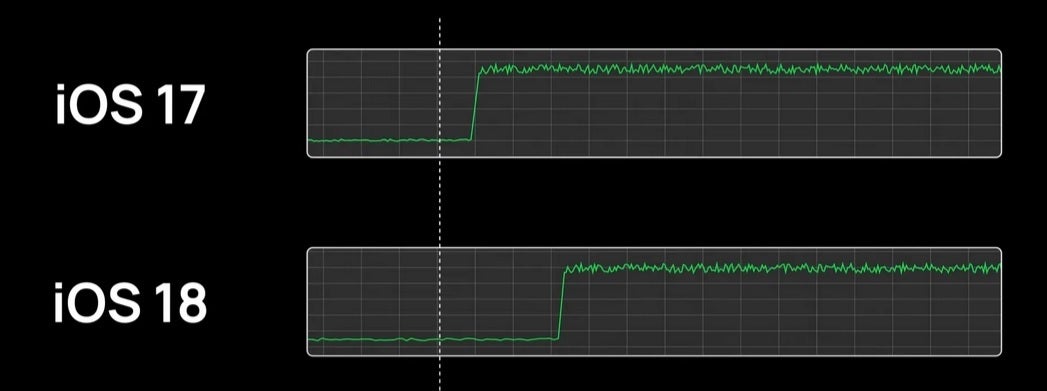The battery test employed by this blogger included having the phones being tested send texts, and make voice and video calls using the WeChat app. It also had the phones browse the internet using the Chinese version of TikTok (called Douyin) and play the game Genshin Impact. The activities were on a loop and the phones continued to run that loop until the battery powering each device died. It appears from the results that optimizations in iOS 18 together with the A17 Pro application processor (AP) are allowing the battery life for the iPhone 15 Pro Max to run up to slightly more than one hour longer.
With iOS 18 running the iPhone 15 Pro Max, Geekerwan’s test showed an increase in the battery life of the phone from 7 hours and 56 minutes to 9 hours and 2 minutes. That works out to an increase of 1 hour and 6 minutes. The iPhone 15 Pro showed an increase in battery life to 6 hours and 55 minutes from 6 hours and 22 minutes. For that model, installing the iOS 18 update increased its battery life by 30 minutes.
In explaining how Apple could achieve the new and higher figures on his test, Geekerwan points to the iOS 18 job scheduler and explains that thanks to the A17 Pro application processor (AP), iOS 18 waits longer before hiking the frequencies of the chipset’s cores as shown in the video he released. For shorter tasks, this results in the cores consuming less power resulting in less of a drain on the battery.

This graph shows how the cores on the A17 Pro wait longer before the frequencies are raised leading to improved battery life. | Image credit-Geekerwan
Since the A17 Pro AP powers only the iPhone 15 Pro and iPhone 15 Pro Max among last year’s iPhones, only those two models are able to take advantage of this optimization. The iPhone 15 and iPhone 15 Plus are both equipped with the older A16 Bionic AP.
If you happen to be running the iOS 18.1 beta on your iPhone 15 Pro series device, you probably are wondering about this extra hour of battery life since the first developer beta that features some Apple Intelligence capabilities has recently had very poor battery life. This will improve next month if you return to the stable, public version of iOS 18.1 when it is released by Apple.
